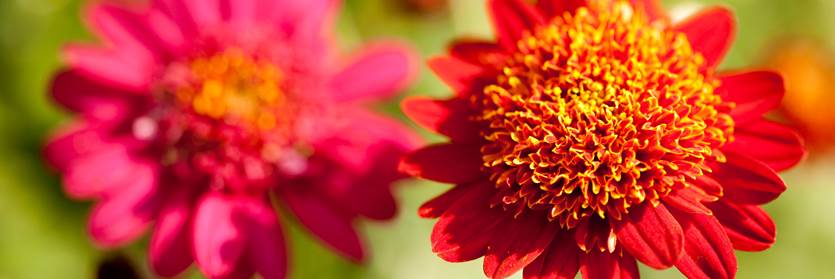The Diary of H.H. Rusby: Short of Breath and Skirting Death
Posted in Science on June 22 2013, by Anthony Kirchgessner
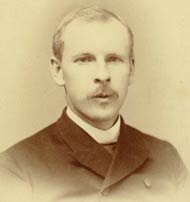
As Rusby and his expedition move deeper into Peru and Bolivia, the daily trials of traveling abroad mingle with fleeting moments for discovery along the way. Rusby’s fascination for all things scientific leads him to the Arequipa Hospital, where he examines ulcer patients, before taking the railroad into the mountains toward Juliaca. In between snatching up passing flowers from a train railing, struggling with altitude sickness, and sleeping through a near-death experience on the steamship, he finds time to identify the local flora, along with fruits and vegetables in city markets.
OFFICIAL DIARY of the MULFORD BIOLOGICAL EXPLORATION OF THE AMAZON BASIN
H. H. RUSBY, DIRECTOR
WEDNESDAY, JUNE 22, 1921
I made a number of purchases of things which will be needed on our expedition. I went to the market and purchased a number of samples of vegetable products and also three pairs of fully dressed figures of Quichua indians, each accompanied, the age of the later varying from infancy to eight or nine years. In the afternoon I secured an automobile and went down to Tiavaya, where the market gardens were located, charging this expense to the Botanical Garden. Here I found growing the fruiting plants of a pepino, having oblong fruits, wholly of a deep purple color like the eggplant. I also found and obtained specimens of a species of Tasconia, which yields an edible fruit sold in the market under the name of “Tumbo“; of a plant yielding another edible fruit, sold in the market under the name of “Acchocta”; of the rhacache, a delicious turnip-shaped root belonging to the parsley family, a species of Arracacia, and some unripe fruits of the Lucuma. In the evening I attended the motion picture exhibit, which was so silly that I left before it was over.
THURSDAY, JUNE 23, 1921
I devoted this day to visiting the Arequipa Hospital, to completely repacking my trunk and valises, and to writing several letters, one of them for publication in the “DRUGGISTS CIRCULAR”.
The visit to the hospital was most interesting. I do not think that a finer hospital exists anywhere. The ground appeared to me to be about a half mile square, most of the land being devoted to gardening and farming. The buildings comprised two groups, separated by a high adobe wall, those in the rear being for contagious and infectious diseases. The plan of the building was as follows. Running thru the center, to the wall mentioned above and about 400 feet long, possibly 500, is a beautiful promenade, nearly a hundred feet wide, and filled with lovely shrubs, trees, and other plants. On either side of this are the buildings, running the entire length of the promenade. The buildings on each side are separated into two rows, by a pathway which is covered and is perhaps 15 feet in width. On the side adjoining the promenade the building is continuous and comprises rooms for operating, for pharmacy, for study, and for a certain number of private patients. On the other side are five wards, each I should think more than a hundred feet in length, probably nearer two hundred and about thirty feet wide. They are beautifully tiled, lighted and well ventilated. Separating them, in every case is another lovely garden, of about the same size as the ward itself. In front facing the street is a beautiful chapel, on either side of which are large buildings for executive purposes.
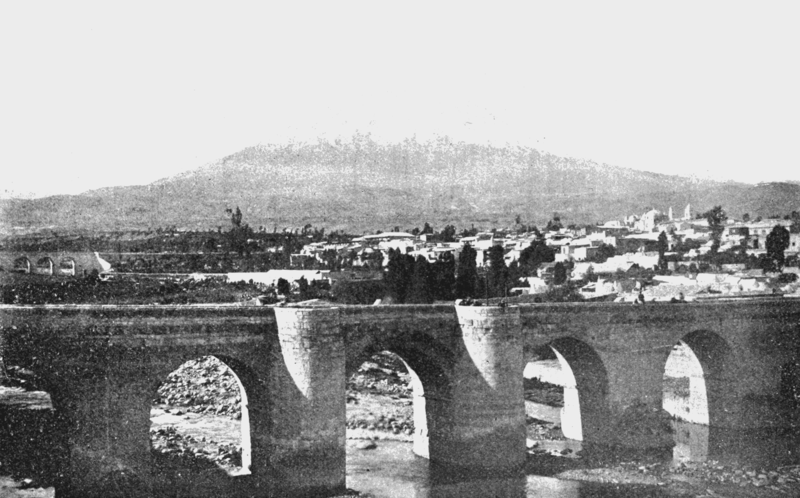
I did not find the director in at the time, nor any of the doctors, to whom I had letters of introduction, but I met a number of the staff doctors, from whom I learned much about the institution. At my request, they gathered the three patients suffering from the ulcer known as “Uta“, and which has generally been regarded as identical with the espundia. I have never accepted this view, and am endeavoring to see as many cases as possible of each disease. These three cases were all on the road to recovery, the primary ulcers having healed, one of them was suffering from secondary ulceration of the throat. My examination of these cases strengthened my belief that this disease was not the same as espundia, and I found that the physicians in attendance had come to share this view. I retired early as I must make an early start tomorrow morning. Before doing so, however, I paid my respects to the U.S. Consulate, the Vice-Consulate, Mr. Brown, of Texas, being in attendance. He was very courteous and offered to reserve rooms for me on tomorrow night’s steamer on Lake Titicaca, an offer of which I gladly and gratefully accepted.
FRIDAY, JUNE 24, 1921
My train departed on time, at 7.30, and at once began the heavy climb up the mountain. The vegetation quickly increased.
And not only were cactuses abundant, but the hills became covered with hardy shrubs. They were in rather bad condition at this dry season, but there were abundant indications of a rich flora in the season of rains. At Yura, the first station stopped, at 2,575 meters, I saw car-loads of bales of a shrub, apparently an Artemisia, and called “Capo”, which is used as fuel in burning lime, which is an important product at this place. A little later we passed thru a region that was gay with flowering plants, mostly shrubs. The prevailing color of the flowers was yellow, but there were some white and some scarlet ones. Farther on, the hills were gay with a blue lupine. I managed to snatch scraps of two flowering plants, one a Senecio, the other apparently a Lycopersicum. At another station I saw huge piles of fuel composed of the strange Azorella, which is used for this purpose over a large part of this highland. It was used also in the hospital at Arequipa, where I saw a stock of it in the fuel room.
We had an excellent breakfast on the train, consisting of good bread and butter, very tender and delicious roast chicken, toast and eggs, very delicate lamb chops, coffee and fruit. We sat in the chair-car which cost $2.00 (U.S. currency). At 10,000 feet I suffered a little from shortness of breath, on making slight exertion, with a suggestion of headache, but when quiet I was quite comfortable. At 13,000 feet the air was somewhat chilly, but scarcely uncomfortable in the middle of the day. At 10,000 feet we had found it comfortably warm, although in the shade of the buildings, there was ice on the water in barrels in the middle of the day.
At the highest point, Ciucero Alto, 4,470 meters, the pools were covered with thin ice and the air was sharp, although it was gloriously warm in the sunshine.
On arriving in Juliaca, the ladies from Cuzco came on board with the astonishing intelligence that Dr. Hoffman without having given me any information of his intentions, decided to remain in Cuzco another week, and that he had persuaded Dr. Pearson to stay with him, although there was no work that he could do there.
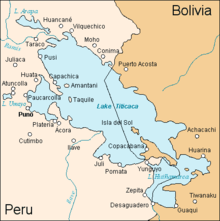
We soon arrived at Puno, where we suffered annoyances which were probably as great as those which we shall encounter anywhere on our journey. The perfect horde of uncontrolled men and boys boarded the train and fought for the possession of our baggage, to transfer it to the boat. We were obliged to leave the train and have our passports vised, notwithstanding that this had been done in New York. We were then required to pass into another room and have them vised a second time which cost us $3.00. On traversing the gang-plank to the steamer with our hands loaded with packages we were forced to stop in the midst of a violently struggling crowd, and get out our passports and have them again examined. Very glad we were that rooms had been reserved for us that were thus saved a long and tedious wait. After a long time the boat was started, but not before we had been compelled to open up all of our baggage and to have it clawed over in the most careless and disorderly manner, giving us great difficulty to get things back into their places and close the suitcases. We talked with the captain about these annoyances and he assured us that the slightest failure to comply with the regulations, or the slightest irregularity in the viseying of our passports, would prevent us from continuing the journey. He said that on every trip he was forced to forbid the sailing of the passengers for these reasons.
At length we were served with a wretched and almost uneatable dinner and retired to rest.
SATURDAY, JUNE 25, 1921
At about three-o’clock this morning we were awakened by the dropping of the anchor and by the loud and excited shouts of the crew. Assuming that we had reached our landing place, I went to sleep again, but rose early so as to repack my suitcases and tie up my bundles neatly, in preparation for our rail-road journey. I then encountered a very much excited captain who informed me that the disturbance of the night had been caused by a very narrow escape from destruction of the vessel and a heavy loss of life at a certain point, the route lies thru a narrow, crooked, rocky channel, dangerous at all times. At this point a boy ran up to inform the captain that the rudder chain had parted and at the same instant the steamer in rapid motion, was found to be unmanageable and to be veering about with the greatest irregularity. The captain instantly stopped the engines and dropped anchor, bringing the ship to a stop within less than a hundred feet of jagged rocks. Swimming for any distance in this icy water would have been impossible. Furthermore, so far as could learn, the ship was not provided with life preservers. Had anyone reached the shore and remained there during the cold night they would have been exposed to very great danger.
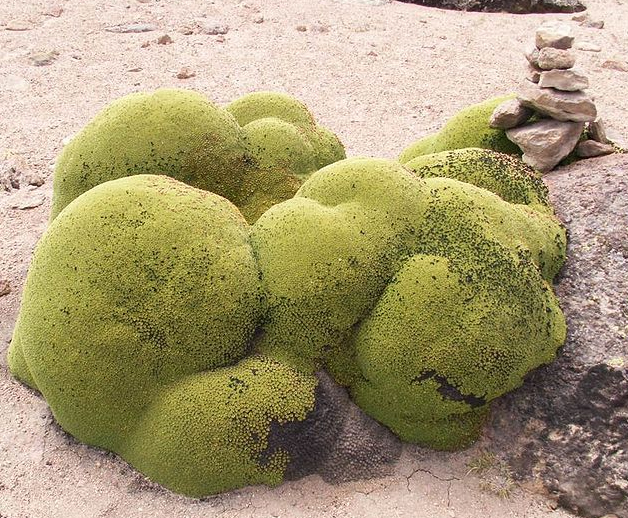
We reached the railway station at Guaqui a little late, but with delightful fine sunshine, contributing to our comfort. My disappointment and annoyance were extreme when I found that my baggage must once more be examined, even more rigidly than before, as a preliminary to boarding the train. It was not until I reached La Paz that I found that a cork had been knocked out of a bottle, flooding my suitcase, and that a package of powder had been broken, the powder being freely distributed among the contents. The ride of about 75 miles to La Paz, thru a country with which I had been familiar 36 years before, was most interesting. The beautiful snowy mountains were in view nearly all of the way. The Aymara indians who inhabit the country along the route appeared to show not the slightest change during the intervening period.
On reaching the railroad station on the summit above La Paz I was met by the most astonishing thing in the appearance of the city. It covered more than four times as much around as previously. Instead of appearing as a mere smudge of red, two thousand feet below us, the red tiled roofs of the ancient city appeared as a small spot in the midst of the newer portion which was roofed with grey corrugated iron.
We descended into the city by a serpentine electric road and were soon met at the station by our entire party and proceeded to the Hotel De Paris, where I engaged a room and where I entertained the entire party at dinner. Immediately afterwards we proceeded to the commodious house that Mr. MacCreagh had provided for us and where the party was living on their own resources, with a chola house-keeper, in control. I decided to move here tomorrow morning. The saving in expense of our entire party by this arrangement is very great.
The day was mostly occupied in digesting the important news which confronted me. The party had been in very close relations with Mr. Maginnis, The American Minister, whose house is nearly opposite us on the next street, and with the American Consul, Mr. Brown, whose residence is close by. Mr. MacCreagh appears to have managed admirably in his relations with these friendly and very helpful officials, so that he has secured about every desired privilege from the government. All of our baggage so far has been admitted free of duty and there is every indication that the same results will attend our large freight shipment, which is expected to arrive early next week.
A more important piece of news to us was that Consul Brown had decided to give up his position and accompany us on our journey, replacing Mr. Cattell on the same terms as those on which he had been engaged. I soon had the privilege of meeting this gentleman.
Immediately upon my arrival here I began to suffer extremely from difficult breathing, and also from the cold atmosphere. Almost immediately after arriving at our rooms I was visited by my niece, a teacher in the American College here, who arranged to have us all at dinner at the College tomorrow.
SUNDAY, JUNE 26, 1921
I left the Hotel for the house very early this morning and soon had my cot and baggage arranged for my occupancy. After breakfast we went to the city market, which was a very busy place. I bought a dozen indian blankets and some other objects for sending home, after which went to the college for dinner. I am suffering intensely with my breathing, but am inclined to think that the enforced expansion of my lungs will prove a great benefit if I can avoid an serious results from the sudden change. I enjoyed a very pleasant afternoon with my niece and retired early.
MONDAY, JUNE 27, 1921
I rose early after a miserable night, although my bed was heavily blanketed and I wore my underclothing it was impossible to keep warm.
After breakfast I went to the German Bank and exchanged some American money at the rate of 4.35 per American Dollar. The rest of the day was devoted to going completely thru the baggage and sorting the articles for permanent arrangement during our journey.
I have seen much of Mr. Brown today and the more I see of him the better I am impressed. His knowledge of business matters and the people here will be of the greatest service to us on our journey. I also met the American Minister today and found him very ready to assist us so far as he could. I met Mr. Denniston, an American merchant whom I had known in New York, and who invited us to dine with him, where we were very nicely entertained.
Mr. Brown went about with us and assisted in the purchase of the large amount of outfit that I had left to be obtained in this city. I find that in every such case my action was justified as these articles can be obtained here at a lower cost than bringing them here from the United States. This is especially true of the sweet biscuits, which are sold at a much lower price than I could have bought them for at wholesale in New York.
TUESDAY, JUNE 28, 1921
I have today continued my repacking and have in fact completed it so far as I can before the arrival of the freight. I wrote a long report to Mr. Hutchison, and packed some of the things which are to go home. We spent some time with Mr. Maginnis, the American Minister. He has arranged for us to accompany him on Thursday afternoon to call upon the Cabinet officials and procure letters of recommendation to officials in the interior. He has also invited us to dine with him on Friday evening. An arrangement has been made for a July 4 celebration at the College on Friday afternoon. The minister is to give a reception on Monday, July the fourth.
I continue to suffer severely from the altitude and have taken a cold which promises to reach quite serious proportions, or at least, very uncomfortable ones. I retired after a hard and tiresome day.
Map, Azorella, and photograph of Arequipa courtesy of Wikimedia Commons.
